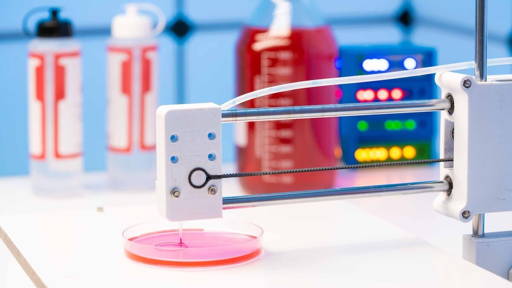The Philips Azurion Neuro Biplane system was recently awarded the prestigious iF Design Gold Award 2025, recognising excellence in design within healthcare technology. We spoke to Ivo Stuyfzand, Design Director of Image Guided Therapy (IGT) Systems at Philips, about the significance of this award, the importance of human-centred design and the role of multidisciplinary collaboration in realising future-proof healthcare solutions.
‘The joy in our team was enormous,’ says Stuyfzand. "Not only because of the award itself, but also because it is recognition for almost a decade of continued development. Azurion has been incrementally improved since its launch, each time retaining the original design philosophy. This allows us to introduce new features each time without sacrificing usability."
Human-centred design for clinical practice
What sets Azurion apart is the way the design team puts the clinical workflow at the centre. ‘We design from the user's perspective,’ explains Stuyfzand. "That means we immerse ourselves in clinicians' work processes and develop a system that actually supports their daily practice. Azurion is designed to make the complex simple - that's what makes it intuitive and accessible."
The iF Design Awards jury praised Azurion as an example of human-centred design. For Stuyfzand, that is more than a design language - it is a design philosophy. "Every choice we make is aimed at strengthening trust among healthcare professionals and increasing patient safety. That starts with empathy and ends with functionality."
Supporting critical care pathways
Azurion's development is the result of collaboration between different disciplines: from industrial designers to UX specialists and service designers. "What binds us is the shared motivation to improve healthcare practice. Every design decision is tested against the question: does this make a difference in the clinic?"
Specifically for acute stroke care, Azurion is optimised for speed and precision. The system offers advanced imaging technologies and increased flexibility in C-arm positioning, allowing care teams to act faster and more effectively. These innovations help reduce the impact of strokes, which have significant personal and societal costs worldwide. Working closely with clinicians, Philips aims to improve the efficiency of angiosuites, patient care and reduce healthcare costs.
"The system provides direct access to the patient's main area, allows seamless switching between 2D and 3D imaging, and gives the team maximum control within the sterile field. This contributes to faster decision-making and increased treatment quality," Stuyfzand said.
Design with impact
Every day, Azurion is used worldwide in life-saving procedures. That realisation is a constant source of motivation, according to Stuyfzand. "It underlines the importance of every detail in the design. We contribute to better care, and that gives our work real meaning."
What is personally most rewarding for Stuyfzand? "When a healthcare professional works with a prototype and you see that it actually helps in their practice. That immediate feedback - that's what we do it for. It drives us to go one step further every time."










